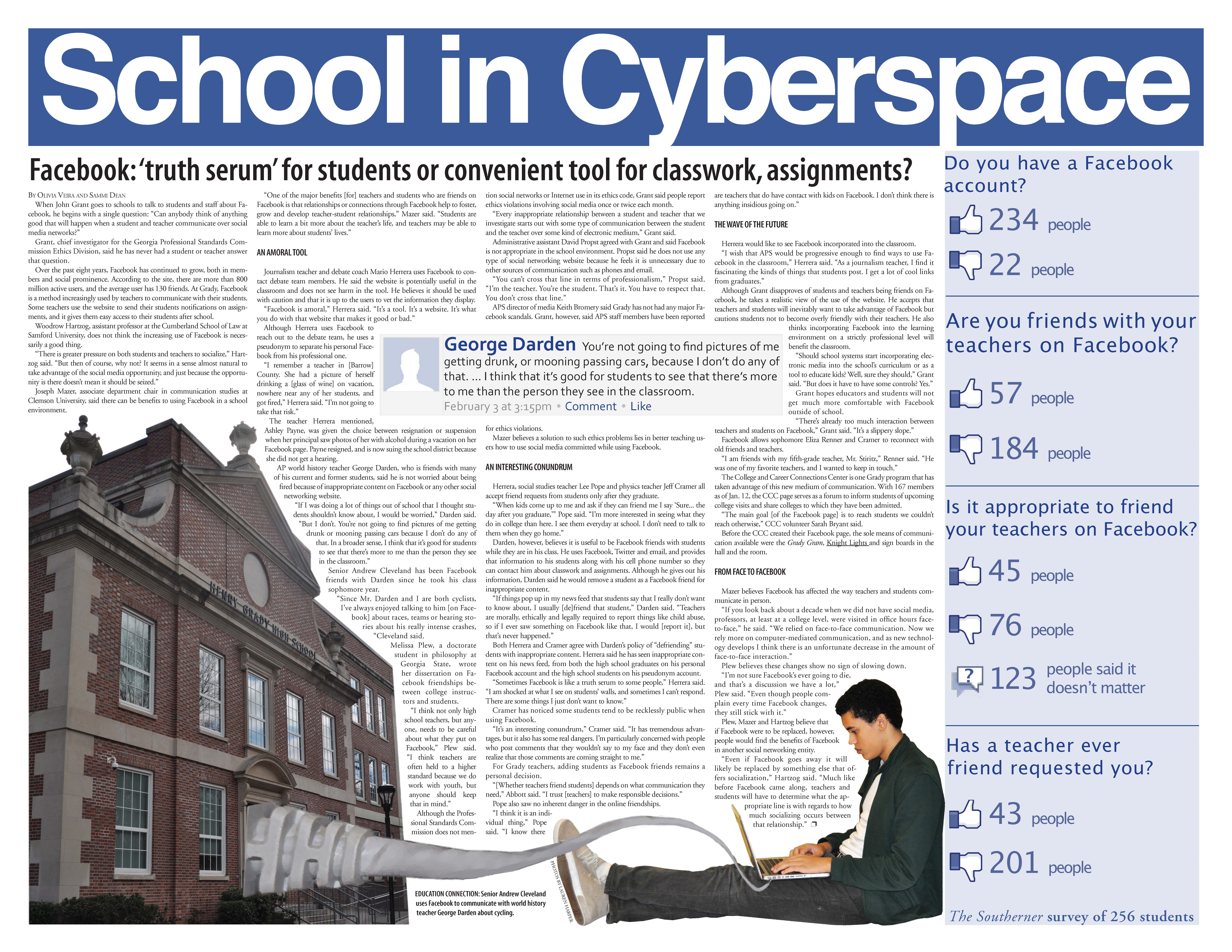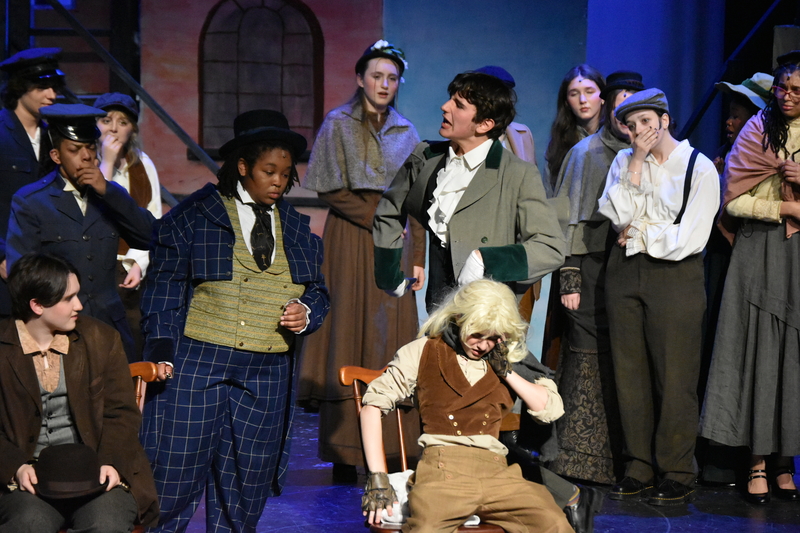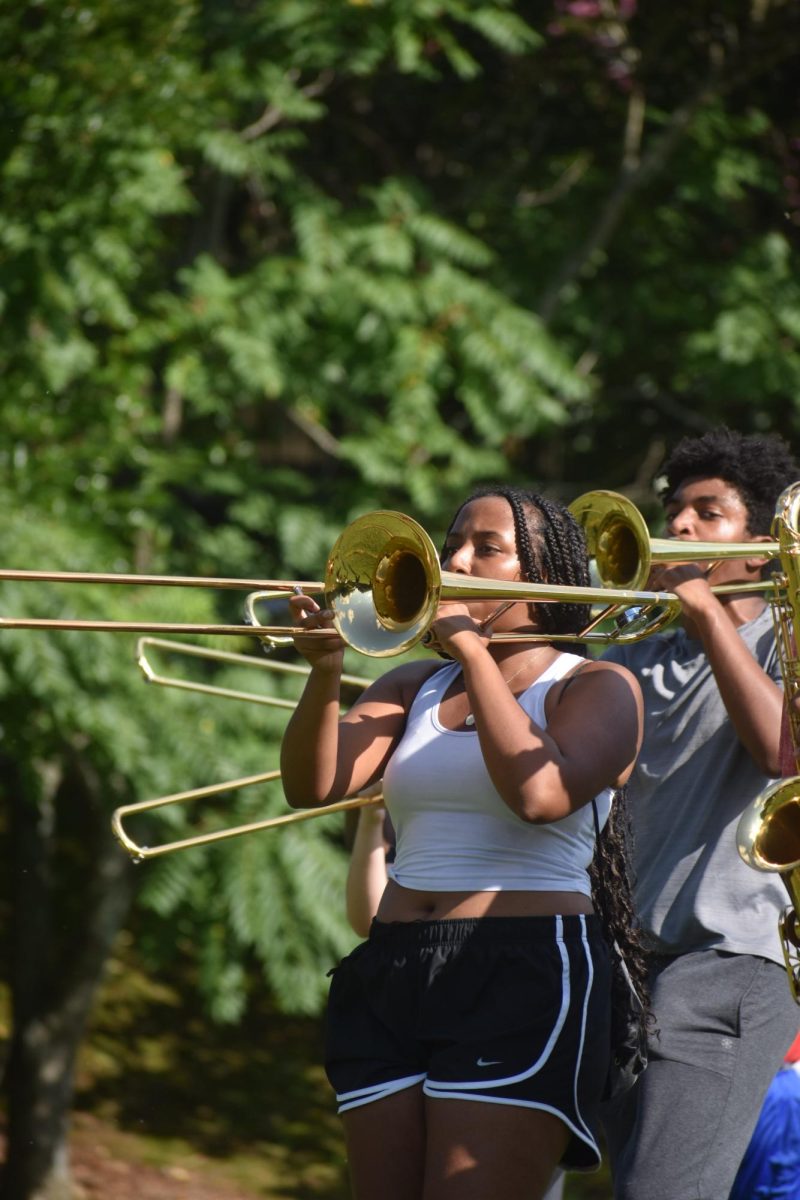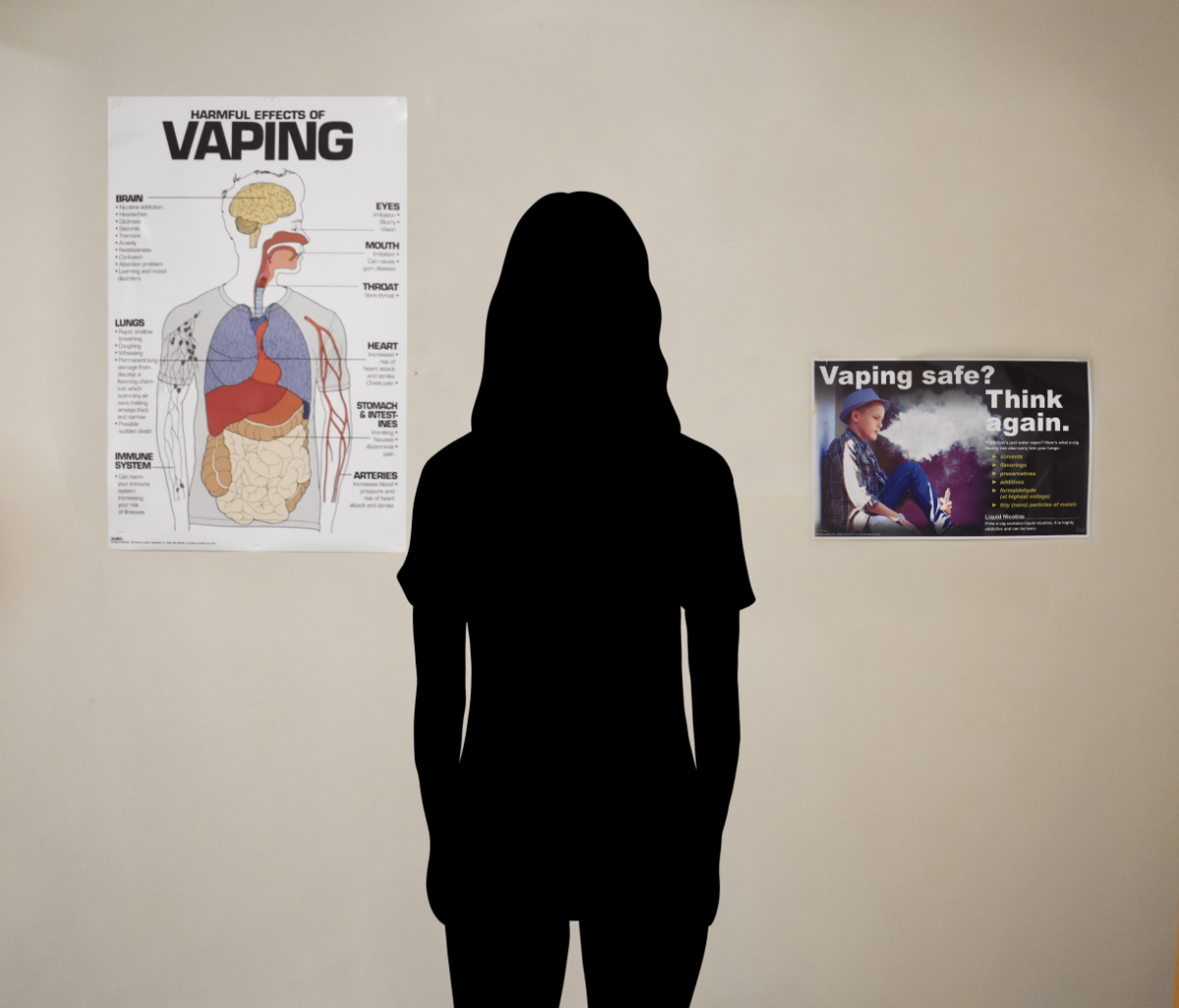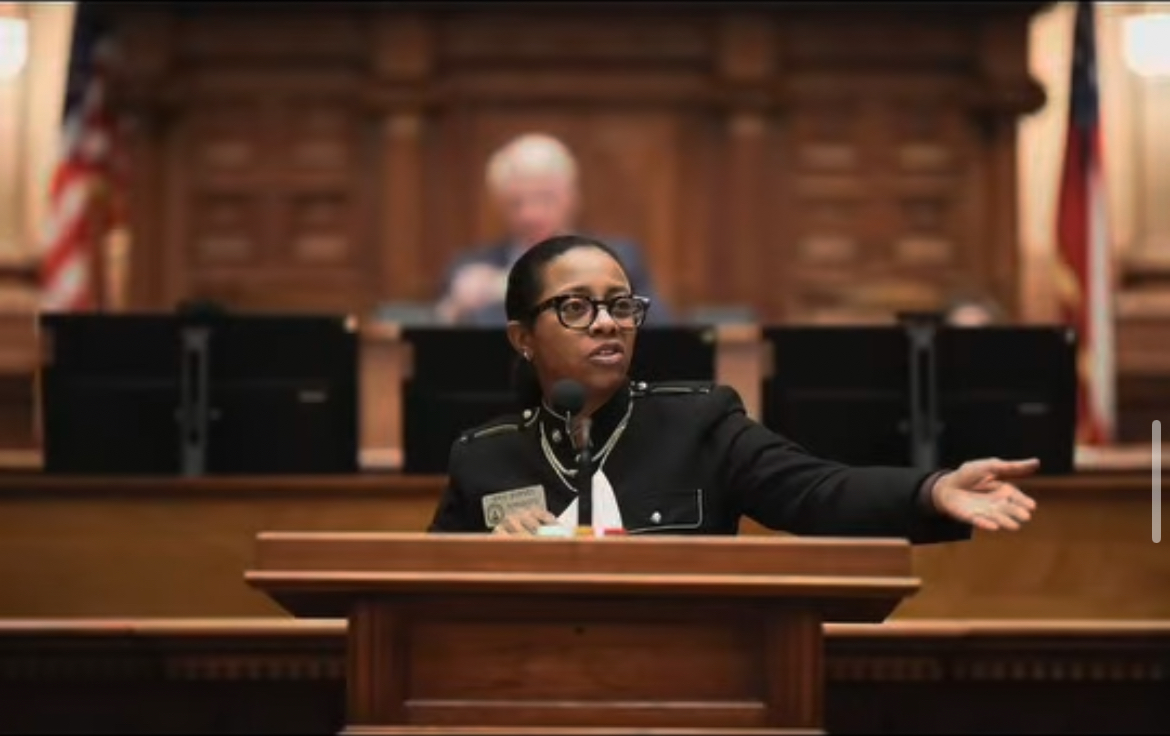When John Grant goes to schools to talk to students and staff about Facebook, he begins with a single question: “Can anybody think of anything good that will happen when a student and teacher communicate over social media networks?”
Grant, chief investigator for the Georgia Professional Standards Commission Ethics Division, said he has never had a student or teacher answer that question.
Over the past eight years, Facebook has continued to grow, both in members and social prominence. According to the site, there are more than 800 million active users, and the average user has 130 friends. At Grady, Facebook is a method increasingly used by teachers to communicate with their students. Some teachers use the website to send their students notifications on assignments, and it gives them easy access to their students after school.
Woodrow Hartzog, assistant professor at the Cumberland School of Law at Samford University, does not think the increasing use of Facebook is necessarily a good thing.
“There is greater pressure on both students and teachers to socialize,” Hartzog said. “But then of course, why not? It seems in a sense almost natural to take advantage of the social media opportunity, and just because the opportunity is there doesn’t mean it should be seized.”
Joseph Mazer, associate department chair in communication studies at Clemson University, said there can be benefits to using Facebook in a school environment.
“One of the major benefits [for] teachers and students who are friends on Facebook is that relationships or connections through Facebook help to foster, grow and develop teacher-student relationships,” Mazer said. “Students are able to learn a bit more about the teacher’s life, and teachers may be able to learn more about students’ lives.”
AN AMORAL TOOL
Journalism teacher and debate coach Mario Herrera uses Facebook to contact debate team members. He said the website is potentially useful in the classroom and does not see harm in the tool. He believes it should be used with caution and that it is up to the users to vet the information they display.
“Facebook is amoral,” Herrera said. “It’s a tool. It’s a website. It’s what you do with that website that makes it good or bad.”
Although Herrera uses Facebook to reach out to the debate team, he uses a pseudonym to separate his personal Facebook from his professional one.
“I remember a teacher in [Barrow] County. She had a picture of herself drinking a [glass of wine] on vacation, nowhere near any of her students, and got fired,” Herrera said. “I’m not going to take that risk.”
The teacher Herrera mentioned, Ashley Payne, was given the choice between resignation or suspension when her principal saw photos of her with alcohol during a vacation on her Facebook page. Payne resigned, and is now suing the school district because she did not get a hearing.
AP world history teacher George Darden, who is friends with many of his current and former students, said he is not worried about being fired because of inappropriate content on Facebook or any other social networking website.
“If I was doing a lot of things out of school that I thought students shouldn’t know about, I would be worried,” Darden said. “But I don’t. You’re not going to find pictures of me getting drunk or mooning passing cars because I don’t do any of that. In a broader sense, I think that it’s good for students to see that there’s more to me than the person they see in the classroom.”
Senior Andrew Cleveland has been Facebook friends with Darden since he took his class sophomore year.
“Since Mr. Darden and I are both cyclists, I’ve always enjoyed talking to him [on Facebook] about races, teams or hearing stories about his really intense crashes, “ Cleveland said.
Melissa Plew, a doctorate student in philosophy at Georgia State, wrote her dissertation on Facebook friendships between college instructors and students.
“I think not only high school teachers, but anyone, needs to be careful about what they put on Facebook,” Plew said. “I think teachers are often held to a higher standard because we do work with youth, but anyone should keep that in mind.”
Although the Professional Standards Commission does not mention social networks or internet use in its ethics code, Grant said people report ethics violations involving social media once or twice each month.
“Every inappropriate relationship between a student and teacher that we investigate starts out with some type of communication between the student and the teacher over some kind of electronic medium,” Grant said.
Administrative assistant David Propst agreed with Grant and said Facebook is not appropriate in the school environment. Propst said he does not use any type of social networking website because he feels it is unnecessary due to other sources of communication such as phones and email.
“You can’t cross that line in terms of professionalism,” Propst said. “I’m the teacher. You’re the student. That’s it. You have to respect that. You don’t cross that line.”
APS director of media Keith Bromery said Grady has not had any major Facebook scandals. Grant, however, said APS staff members have been reported for ethics violations.
Mazer believes a solution to such ethics problems lies in better teaching users how to use social media committed while using Facebook.
AN INTERESTING CONUNDRUM
Herrera, social studies teacher Lee Pope and physics teacher Jeff Cramer all accept friend requests from students only after they graduate.
“When kids come up to me and ask if they can friend me I say ‘Sure… the day after you graduate’,” Pope said. “I’m more interested in seeing what they do in college than here. I see them everyday at school. I don’t need to talk to them when they go home.”
Darden, however, believes it is useful to be Facebook friends with students while they are in his class. He uses Facebook, Twitter and email, and provides that information to his students along with his cell phone number so they can contact him about classwork and assignments. Although he gives out his information, Darden said he would remove a student as a Facebook friend for inappropriate content.
“If things pop up in my news feed that students say that I really don’t want to know about, I usually [de]friend that student,” Darden said. “Teachers are morally, ethically and legally required to report things like child abuse, so if I ever saw something on Facebook like that, I would [report it], but that’s never happened.”
Both Herrera and Cramer agree with Darden’s policy of “defriending” students with inappropriate content. Herrera said he has seen inappropriate content on his news feed, from both the high school graduates on his personal Facebook account and the high school students on his pseudonym account.
“Sometimes Facebook is like a truth serum to some people,” Herrera said. “I am shocked at what I see on students’ walls, and sometimes I can’t respond. There are some things I just don’t want to know.”
Cramer has noticed some students tend to be recklessly public when using Facebook.
“It’s an interesting conundrum,” Cramer said. “It has tremendous advantages, but it also has some real dangers. I’m particularly concerned with people who post comments that they wouldn’t say to my face and they don’t even realize that those comments are coming straight to me.”
For Grady teachers, adding students as Facebook friends remains a personal decision.
“[Whether teachers friend students] depends on what communication they need,” Abbott said. “I trust [teachers] to make responsible decisions.”
Pope also saw no inherent danger in the online friendships.
“I think it is an individual thing,” Pope said. “I know there are teachers that do have contact with kids on Facebook. I don’t think there is anything insidious going on.”
THE WAVE OF THE FUTURE
Herrera would like to see Facebook incorporated into the classroom.
“I wish that APS would be progressive enough to find ways to use Facebook in the classroom,” Herrera said. “As a journalism teacher, I find it fascinating the kinds of things that students post. I get a lot of cool links from graduates.”
Although Grant disapproves of students and teachers being friends on Facebook, he takes a realistic view of the use of the website. He accepts that teachers and students will inevitably want to take advantage of Facebook but cautions students not to become overly friendly with their teachers. He also thinks incorporating Facebook into the learning environment on a strictly professional level will benefit the classroom.
“Should school systems start incorporating electronic media into the school’s curriculum or as a tool to educate kids? Well, sure they should,” Grant said. “But does it have to have some controls? Yes.”
Grant hopes educators and students will not get much more comfortable with Facebook outside of school.
“There’s already too much interaction between teachers and students on Facebook,” Grant said. “It’s a slippery slope.”
Facebook allows sophomore Eliza Renner and Cramer to reconnect with old friends and teachers.
“I am friends with my fifth grade teacher, Mr. Stiritz,” Renner said. “He was one of my favorite teachers, and I wanted to keep in touch.”
The College and Career Connections Center is one Grady program that has taken advantage of this new medium of communication. With 167 members as of Jan. 12, the CCC page serves as a forum to inform students of upcoming college visits and share colleges to which they have been admitted.
“The main goal [of the Facebook page] is to reach students we couldn’t reach otherwise,” CCC volunteer Sarah Bryant said.
Before the CCC created their facebook page, the sole means of communication available were the Grady Gram, Knight Lights and sign boards in the hall and the room.
FROM FACE TO FACEBOOK
Mazer believes Facebook has affected the way teachers and students communicate in person.
“If you look back about a decade when we did not have social media, professors, at least at a college level, were visited in office hours face-to-face,” he said. “We relied on face-to-face communication. Now we rely more on computer-mediated communication, and as new technology develops I think there is an unfortunate decrease in the amount of face-to-face interaction.”
Plew believes these changes show no sign of slowing down.
“I’m not sure Facebook’s ever going to die, and that’s a discussion we have a lot,” Plew said. “Even though people complain every time Facebook changes, they still stick with it.”
Plew, Mazer and Hartzog believe that if Facebook were to be replaced, however, people would find the benefits of Facebook in another social networking entity.
“Even if Facebook goes away it will likely be replaced by something else that offers socialization,” Hartzog said. “Much like before Facebook came along, teachers and students will have to determine what the appropriate line is with regards to how much socializing occurs between that relationship.”

